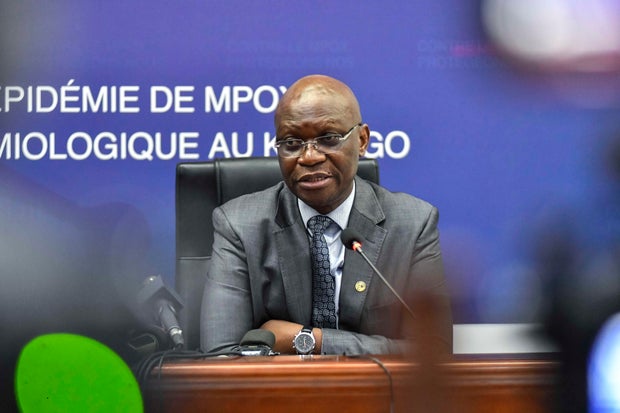johnsburg — For weeks, it was simply called “Disease X.” but Mysterious flu-like illness In the Democratic Republic of the Congo, more than 143 people, mostly women and children, who have died have finally been identified.
“The mystery has finally been solved,” Congo's Ministry of Health declared in a statement on Tuesday. “This was a severe case of malaria in the form of a respiratory disease.”
The health agency said malnutrition in the worst-hit areas weakened the immunity of local residents, making them more susceptible to the disease. People infected with malaria experience symptoms such as headache, fever, cough and body aches.
Congo's health minister told reporters the country was on “highest alert” over the spread of the previously unknown disease, and health officials told CBS News in early December that the outbreak's epicenter's remoteness and lack of diagnosis made it difficult to take action .
Samy Ntumba Shambuyi/AP
Since the Congolese Ministry of Health first issued the alert on October 29, at least 592 cases have been reported. According to the World Health Organization, more than half of the recorded deaths were children under the age of five who were severely malnourished when they contracted the disease.
At a press conference on December 10, WHO Director-General Tedros Adhanom Ghebreyesus stated that 10 of the 12 samples collected from patients with this mysterious disease tested positive for malaria, but he They said they were still testing for other diseases at the time.
The Congolese government has dispatched a rapid intervention team composed of epidemiologists and other medical experts to Kuango province, 435 miles southeast of the capital Kinshasa. Their goal is to identify the disease and take appropriate response measures. Government officials earlier warned locals to avoid coming into contact with infected or dead bodies.
Congo has experienced numerous disease outbreaks in recent years, including typhoid, malaria and anemia. The country is also grappling with mpox outbreakAccording to the World Health Organization, there have been more than 47,000 suspected cases and more than 1,000 suspected deaths.
Anti-malaria drugs provided by the World Health Organization are being distributed at local health centers in Congo, and WHO officials said more medical supplies would arrive in the country on Wednesday.
It's the rainy season in Congo, and malaria cases often increase, which is sure to make treating high-risk groups more complicated.





